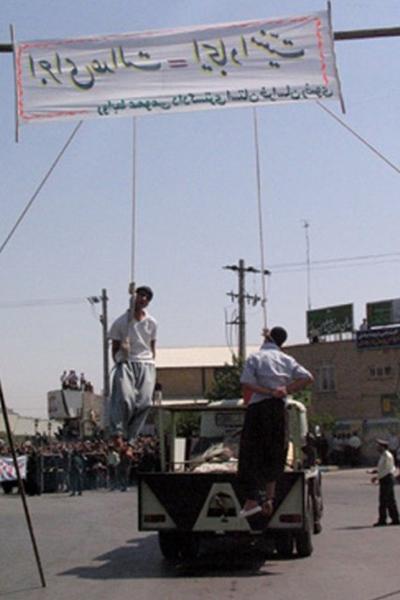The specific reference to sexual orientation was restored Dec 21 to a United Nations resolution condemning extrajudicial, summary and arbitrary executions.
On Nov 16 Canada, without contributing to the debate, voted in the minority against removing the 10-year-old sexual orientation reference. The Canadian delegate subsequently, along with 165 other countries, voted in favour of adopting the execution proscription in its entirety.
But the reference was restored after an intense lobbying effort spearheaded by the United States. The vote was 93 countries in favour of restoring the reference to the resolution, 55 against and 27 abstentions, which is a shift of 47 countries in favour of gay rights.
“Canada is pleased that the amendment reinserting a reference to sexual orientation passed,” says a spokesperson for the Department of Foreign Affairs. “As a traditional co-sponsor of this resolution, Canada worked with like-minded countries to retain the language on sexual orientation within this resolution.”
In the wake of the previous vote, lesbian Conservative Senator Nancy Ruth urged her Senate colleagues to reconsider any travel plans to Caribbean countries that voted in favour of the removal of sexual orientation from the resolution.
“If honourable senators are travelling south in January to Cuba, Grenada, Guyana, Haiti, Jamaica, St Kitts and Nevis, St Lucia, Barbados, Colombia, Trinidad and Tobago, St Vincent and the Grenadines, they should remember that those countries voted against, or abstained from, protecting gays, and they will let gays be killed,” Ruth said in the Senate on Dec 8. “If honourable senators want to change their travel plans, they should head for Costa Rica, the Dominican Republic or Mexico.”
Canada’s voice was conspicuously absent from the minutes of the debate to remove the reference in the first place, but it did speak in favour of restoring the reference in this round.
“Canada is deeply concerned by the continuing violations all over the world of human rights and fundamental freedoms based on sexual orientation or gender identity, as well as the violence, harassment, discrimination, exclusion, stigmatisation and prejudice directed against persons because of sexual orientation or gender identity,” reads the Canadian submission. “Canada is particularly concerned that individuals should not be targeted for killing or execution because of their real or perceived sexual orientation or gender identity… We urge States to take all necessary measures, including legislative and administrative measures, to ensure that sexual orientation or gender identity may under no circumstances be the basis for criminal penalties, in particular executions, arrests or detention, and encourage all states to take action to prevent extrajudicial, arbitrary and summary executions and to prosecute those who commit such acts.”
Curiously, even though the United States voted in favour of the amendment to restore sexual orientation, it was among 62 countries that abstained from the vote to pass the execution proscription resolution in its entirety. In November, after the previous votes, US spokespersons said the country abstained because of “lack of clarity” in wording in relation to international warfare laws, which is likely about the US military’s use of aerial drones in targeted attacks.
One hundred and twenty-two countries voted for the execution proscription, 62 countries abstained. Only Saudi Arabia voted against the resolution.


 Why you can trust Xtra
Why you can trust Xtra


